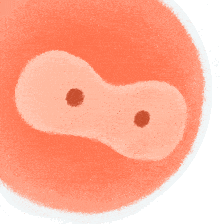As the operation date was drawing near, my uneasiness about the change of surgeon lingered on. I still remember how Mr J assured me in our very first meeting that he would be the one operating on me. Two medic friends of mine encouraged me to get to the bottom of this by speaking to Mr J, since I have the right to know.
Meanwhile, the hospital sent me information on the dos and don’ts before the operation. One instruction concerns the use of the common painkiller ibuprofen, that one shouldn’t take it on the day of admission for the operation. This poses a problem for me, for I use a low dose of ibuprofen to control period pain and very unpleasant, related signs (such as vomiting and passing out). There was a good chance that my period would commence on the day of the operation. What should I do then? I couldn’t be the only female on this planet needing surgery and facing this ibuprofen dilemma, right? Surgeons must have solutions for this, and I couldn’t possibly end up in distress while waiting for my turn to be called for the operation?
I was suddenly envious of male patients who not only have less concern about a scar on the chin (just grow a beard!), but also have no periods!
A few days prior to admission, a nurse called to check if I had questions about the pre-operative instructions. I raised the issue about ibuprofen, to which she said she didn’t know what the best course of action was. I seized the opportunity and asked to have a word with my surgeon, because we needed to act quickly, with the operation happening in a few days’ time. I was relieved she agreed and arranged the call.
Right, it’s that familiar voice again on the line. He began with a quick recap on the details of Plans A and B, that from his experience, it would be Plan A for me. As for the duration, Plan A would take three hours, whereas Plan B would incur two hours on top of that, so five hours in total.
“Three to five hours —— that’s quite long!” I pictured how surgeons had to stand all the way through while doing some delicate work on the patients. What a test of stamina!
“Oh, not at all. The truly long ones last for some ten hours!”
How long would post-operative recovery take? Prior to this call, I had no way of telling. Since Mr J once said that Plan A would be like facelift cosmetic surgery, a wacky thought came to my mind: given there must be quite many people going for facelifts, why not have a look at what cosmetic surgery clinics say on their websites about the recovery process? Yes, it’s silly, but I had a quick glance anyway. Most of them said their clients could return to work within one to two weeks.
Plan A’s recovery would also take about two weeks, Mr J said. Well, I would be on sick leave anyway, so I wasn’t in any rush. I was more concerned with whether I would be in pain!
Having covered the technical details, I brought up the question about him “assisting” Mr F in my operation. It turned out it would be a “double-act”! How come?
Well, my operation fell on a Monday. Mr J doesn't work Mondays normally but Mr F does —— that’s how the rota goes. However, since Mr J is really "old-school" and doesn't like his patients being passed to other doctors, he made an exception to come in for me. Aha!
“Wow, that’s ‘buy one get one free’ then?” I quipped.
Then the conversation flowed naturally to how he was pretty sure about Plan A based on his “experience”. What “experience” exactly, since there were so few cases around, I said candidly. It was then he gently revealed that he’s seen the largest number of cases of parapharyngeal space tumours in the UK.
Oh, dear humble Mr J, why hadn’t you told me earlier!?
Wow, so you must be an expert in this condition!
"No, I can’t say that, but what I can say is I have seen more cases than others. Have a look at a review paper I published a few years ago if you’re interested."
So...... in a 25-year period, only 1293 cases of parapharyngeal space tumours were documented in English literature worldwide. Mr J himself has dealt with roughly 40 cases in his career. (Contrast those numbers with over 50,000 new breast cancer diagnoses in the UK annually, you'll get the idea.)
What's the probability of having won the ninja jackpot AND being cared for by the British expert on the subject who happened to be serving in the NHS hospital I was in? How lucky was I!?
As for ibuprofen, Mr J explained that the drug might interfere with blood clotting and hence the control of bleeding at the wound, but given the low dosage, it’s not a problem at all, so use it if needed. Phew!
Before hanging up, he said the biopsy results would be ready a few weeks after the operation, and even if the tumour was confirmed to be benign, radiotherapy would follow. That’s exactly what I jotted down —— I still have the notes to prove, but I was probably still flabbergasted by this unexpected encounter with “the expert”, that his final message went like water off a duck’s back......
